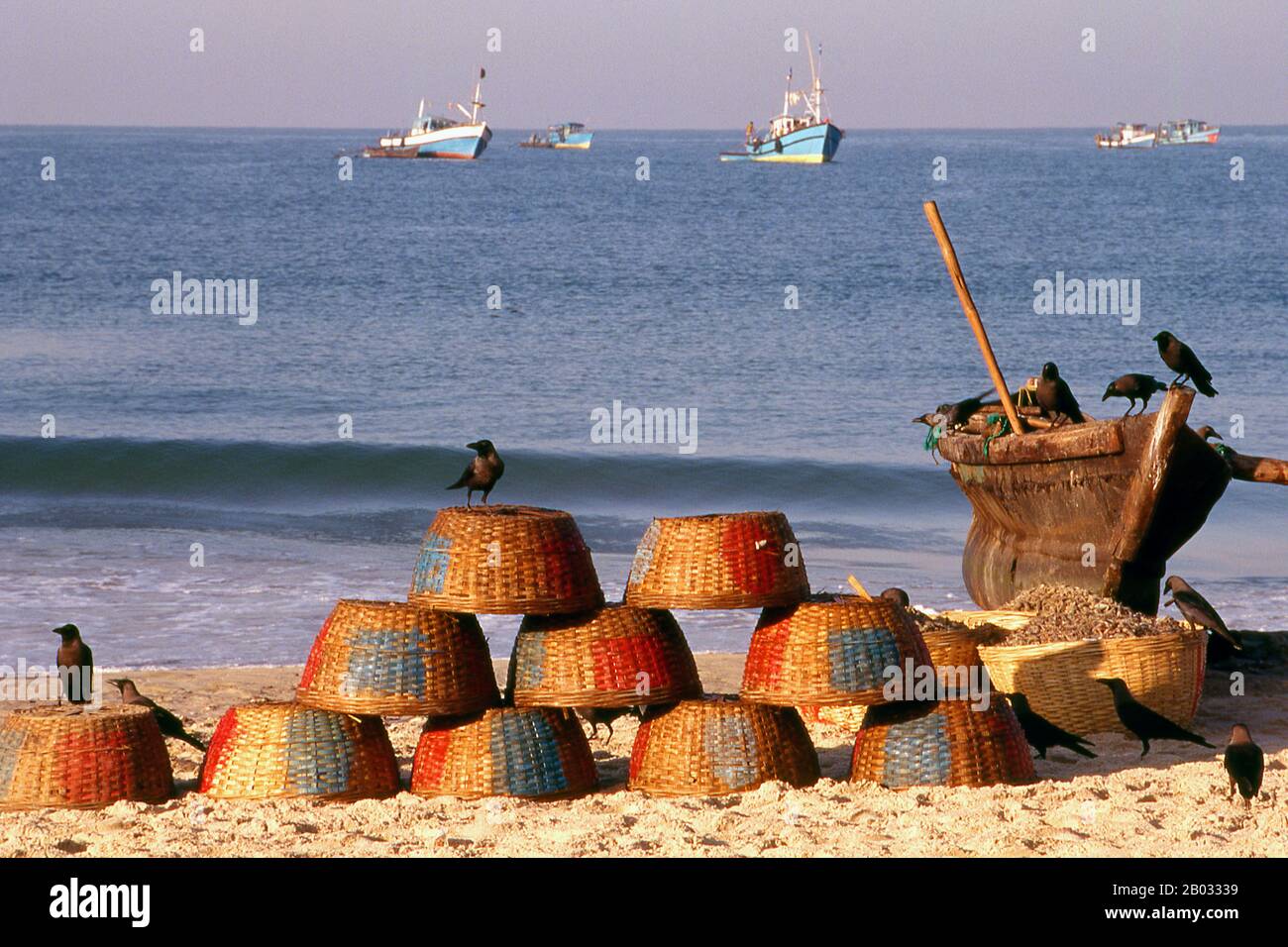Colva had significant importance to Portugal and was the retreat for Goa's high society, who would come to the village for their Mundanca or change of air. Today the Portuguese area is dotted with houses or villas, including many ruins. The beach is particularly busy in October, when religious pilgrims come and visit the Our Lady of Mercy Church (Igreja de Nossa Senhora das Merces). The church was founded in 1630 by the Roiz family and rebuilt in the eighteenth century on the village square. The local people have been fishermen since the mid-16th century. They include Hindu converts as well a

Image details
Contributor:
CPA Media Pte Ltd / Alamy Stock PhotoImage ID:
2B03339File size:
47.9 MB (1.9 MB Compressed download)Releases:
Model - no | Property - noDo I need a release?Dimensions:
5010 x 3339 px | 42.4 x 28.3 cm | 16.7 x 11.1 inches | 300dpiDate taken:
18 February 2016Photographer:
Pictures From HistoryMore information:
This image could have imperfections as it’s either historical or reportage.
Colva had significant importance to Portugal and was the retreat for Goa's high society, who would come to the village for their Mundanca or change of air. Today the Portuguese area is dotted with houses or villas, including many ruins. The beach is particularly busy in October, when religious pilgrims come and visit the Our Lady of Mercy Church (Igreja de Nossa Senhora das Merces). The church was founded in 1630 by the Roiz family and rebuilt in the eighteenth century on the village square. The local people have been fishermen since the mid-16th century. They include Hindu converts as well as migrants from various Portuguese overseas territories such as Angola, Mozambique, Brazil, etc. as well as Portugal itself.